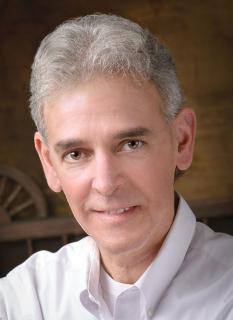Sam Gingold became a man at 7-years-old. There was no bar mitzvah ceremony.
Sam’s manhood was confirmed through his part in the fight his family waged to live in the Warsaw Ghetto during World War II.
The story of how Sam and his family survived is told by Sam’s son Jeffrey in “Tunnel, Smuggle, Collect: A Holocaust Boy.”
“The book is written from my father’s perspective,” the author said. “He was very young when this happened. The story is told from a child’s, his, perspective.
“This is my family’s story.”
The book’s publisher is Milwaukee-based Henschel Haus Publishing Inc. The royalties are being donated to the Nathan & Esther Pelz Holocaust Education Resource Center of the Milwaukee Jewish Federation.
Jeffrey knew his family had somehow survived the Warsaw Ghetto. He didn’t know how. No one who was there — his father Sam, his grandmother Leah Gingold, or his grandfather Duvid Gingold — would talk about it. It was too difficult.
“The Holocaust remains fresh in the minds of those who lived it,” Jeffrey explained. “The wounds have never scabbed over. They are still fresh.”
It was a story that needed to be told, Gingold knew. He just had to wait for the correct time.
It was through a combination of toughness, guile and will that the Gingolds survived and escaped.
The Nazis created the ghetto in October and November 1940 as a way station for those they planned to exterminate. More than 400,000 people were crammed into an area of 1.3 square miles. The Gingolds and Leah Gingold’s brother and sister, Chava and Froim Weintal, were among them.
An estimated 300,000 ghetto prisoners died from starvation, disease, deportation to and murder in the Treblinka camp and in combat in the 1943 Warsaw Ghetto uprising. After the Germans crushed the uprising, they razed the ghetto.
The Gingolds and Weintals escaped prior to the uprising. Sam’s father Duvid decided it was better to risk possible death in an escape attempt than to face the certain death the Germans were providing.
The family eventually made it to Siberia where they worked in the Russian war effort. At the end of the war, they made it to American controlled territory and eventually to Milwaukee.
In 2001 Jeffrey convinced his grandmother, Leah, to relate the story. His grandfather, Duvid, had died in 1984. Leah was one of the last links to that time.
“My grandmother was living in the Golda Meir House at the time,” Jeffrey said. “I took my father — the subject of the book — along to translate the Yiddish and to fill in the gaps.”
Over the next two years, Jeffrey videotaped his grandmother as she made the mental trip back to World War II and the ghetto. The interviews were difficult, Jeffrey said. Several times the camera was turned off when a point too raw made Leah break down.
When the interviews were completed, Jeffrey stored the tapes in his Milwaukee home. He did not watch them. The power of those memories was too great.
“I didn’t want to see them or show them to anybody,” he said.
When Leah died in 2008, Jeffrey decided it was time to bring the tapes out.
“I watched them with my Dad,” Jeffrey said. “I then interviewed him over the next two years.
“We went through what happened on an almost day-by-day basis. We had to pause sometimes and reconvene. Emotions controlled how long the interviews lasted. Many times he would break down. We would pause and change the subject.”
Jeffrey learned that his father, along with other children, crawled through tunnels to deal with black marketers to obtain food and medicine.
When the Nazis stopped the smuggling, Sam helped collect corpses. Starvation, disease and German cruelty ensured there was an endless number.
“Dad saw death every day,” Jeffrey said. “There were a thousand ways to die. They did whatever they could to survive.”
It took several more years for Jeffrey to complete the manuscript.
Jeffrey said he is telling the story to ensure what happened is never forgotten.
“The older generation is dying,” he said. “I didn’t want the memories to be lost. It is important to remember what happened, not just for the people who perished, but also as a benchmark. We are bearing witness.”
Jeff Cole is a Milwaukee-based freelance writer. He is currently at work on his first novel.



